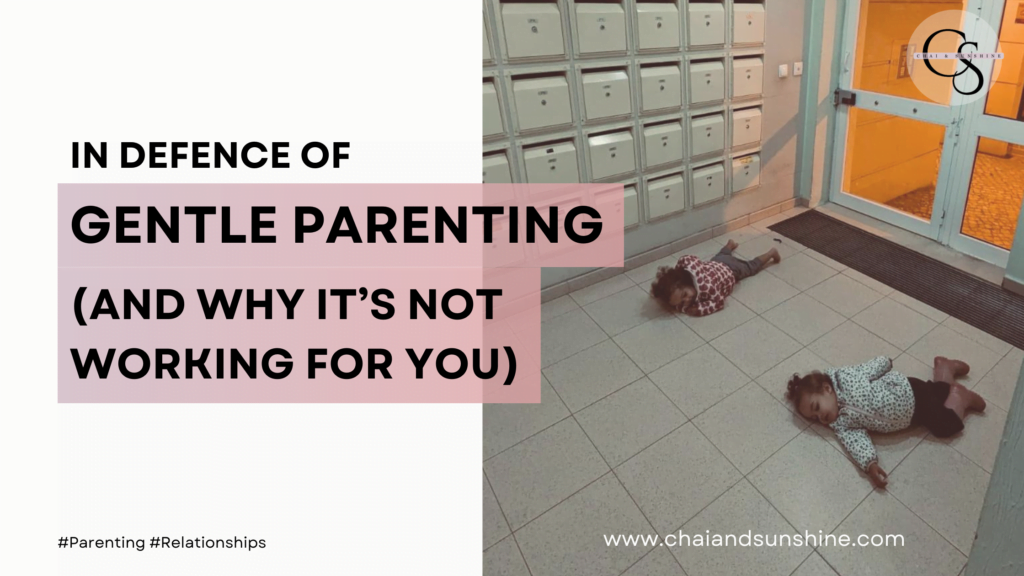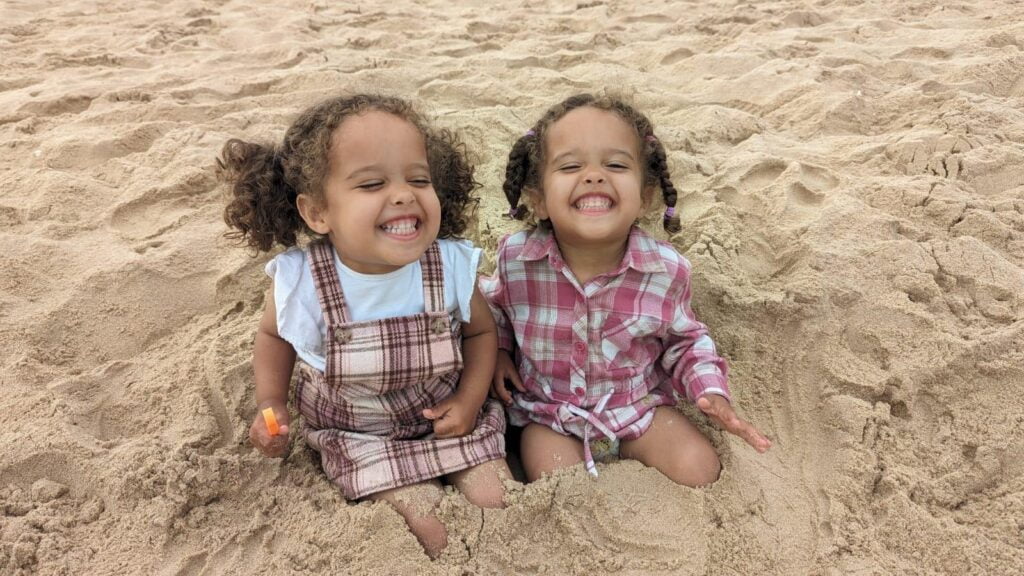
Gentle parenting. It’s what my generation of parents – the millennials – have turned to as the gold standard.
But for some reason, it’s controversial amoung childless boomers like talk show host Bill Maher, who spent 10 minutes calling for the return of “trad dads” and comparing parenting to blow jobs.
Yuck.
But these insensitive boomer mofos are the exact reason why we’re all in therapy.
So, in defence of gentle parenting, here’s my take on why it might not be “working” for some of you.
Table of Contents
ToggleWhat is Gentle Parenting?
Gentle parenting is focused on building a strong, loving connection with your child while setting clear, consistent boundaries.
It’s about responding to your child’s emotions with empathy, patience, and respect.
Instead of relying on punishment or rewards, gentle parenting emphasises positive discipline, co-operation, and problem-solving.
Can you imagine: a child with strong inherent self-worth?
It’s creating a safe space for your child to learn, grow, and develop into a confident, compassionate individual.
And also about creating a safe enough space for your children to come to you in times of trouble.
Essentially, gentle parenting is about treating your child with the same respect and understanding you’d hope to receive.
What’s so controversial about that?
Principles and Characteristics of Gentle Parenting (with Examples)
1. Your Child is their Own Person
Perhaps the most important principle for me: realsing your child is their own person with their own feelings, thoughts, and ideas.
They are not merely an under-developed human waiting to be moulded by you into your ideal version of what a child is to be.
Respecting this, and respecting their interests and feelings is paramount to raising healthy human beings.
2. Emotional Validation
Understanding and validating your child’s feelings is so key.
Instead of dismissing emotions like anger or frustration, gentle parenting means parents listen actively and offer comfort.
For example, if a child is upset, even if you don’t think it’s logical, a gentle parent might say, “I can see you’re really disappointed. It’s okay to feel that way.”
We also offer regulating hugs to our twins to help them manage their big feelings.
3. Respectful Communication
Treating your child with respect, even when they’re challenging, sets your kid up to trust you, have a strong sense of worth, and be respectful all at once.
This involves using kind and respectful language, explaining reasons behind decisions, and inviting your child to share their perspective.
For example, instead of yelling, “Stop it!” (or worse), a gentle parent might calmly say, “I understand you’re angry, but we don’t throw toys around the house because they might break things. When things get broken, mommy and daddy feel sad.”


4. Clear, Consistent Boundaries
While gentle parenting emphasises connection, it also recognises the importance of limits.
Age-appropriate boundaries are set with firmness and kindness, explaining expectations and consequences clearly.
For example, if a child is hitting, a gentle parent might say, “Hitting hurts. We use our words to express anger. We don’t hit.”
Boundaries are some of the best things we can impart to our kids. Too few (permissive) can lead to a person with narcissistic personality disorder and traits. Too many and too harsh (authoritarian) is associated with many issues too.
5. Age-Appropriate Autonomy
Empowering your child to make choices and solve problems builds confidence and resilience.
Gentle parenting encourages autonomy while providing support and guidance.
For example, when faced with a decision, a gentle parent might offer options and help weigh the pros and cons.
Gentle parents aren’t helicopter parents. Nor do they prescribe or direct.
They build their children’s self-esteem by allowing them to experiment and figure things out.
6. Positive Reinforcements and (Mostly Natural) Consequences
Gentle parenting focuses on rewarding positive behavior and allowing natural consequences to teach valuable lessons.
Instead of relying on punishment, parents use praise, encouragement, and logical consequences.
For instance, if a child doesn’t pick up their toys, a natural consequence might be the inability to find a specific toy when they want to play with it.
Of course, there are times when parents need to add consequences because the natural consequence may not be enough to deter the young one.
But if you’ve built enough trust, we’ve found that you simply have to explain why you do/ don’t do something and your children (even as young as 2) will believe you and refrain from the offending behaviour.
Why Gentle Parenting isn't "Working" for You
People (parents and onlookers) are often frustrated that gentle parenting does not yield quick results.
And it’s tempting to be less gentle when your little one is having a meltdown at the restaurant.
But gentle parenting is NOT merely a quick fix or a set of techniques to manipulate children into behaving perfectly.
It’s a philosophy rooted in respect, empathy, and building a strong parent-child bond.
Seeing gentle parenting as a tool to control outcomes rather than a foundation for a healthy relationship is the opposite of gentle parenting. It is just another form of manipulation and control.
If you’re pretending to gentle parent in order to get the child to do what you want, you’ve missed the core idea: that children are individuals with their own personalities and needs, not projects to be moulded.
True transformation occurs over time as children develop a strong sense of self, security, and autonomy within a loving, consistent environment. (Hint: it’s the things a lot of us have to go to therapy in adulthood to try to mend).
The “results” of gentle parenting are embedded in a child’s character, their ability to form healthy relationships, and their overall well-being.
It’s about giving the priceless gift of a secure attachment and fostering a child’s innate potential.
What to do about it
Go. To. Fu*king. Therapy. Periodt.
Can’t afford it?
Invest some time into understanding yourself.
Read psychology books (not to be mistaken for self-help books which are often a lot of words with no substance).
Journal. Talk to friends. To family you can trust.
Have some curiosity about yourself.
You weren’t always they way you are now. Figure out how you got there. Why? Who steered you in that direction?
And then ask yourself if you might have benefitted from having gentler parents when you were young.
Final Thoughts
It’s not always easy to handle your children’s big emotions when you never learnt how to regulate your own.
But as the adult and parent in the situation, it’s up to us to figure things out.
By taking on the responsibility of regulating your own emotions, gentle parenting will be a lot easier.
Not easy. Nothing about parenting is easy!
But at least you won’t be triggered by them all the time.
And to the Bill Maher’s out there: your ideas on parenting (especially if you’ve never been one?!) are very outdated and has led to a lot of the strife we see amoung millennials now.
Really, I’d like to say f*ck you! But I’ve learnt to regulate myself a bit more than I used to be able to.
So, I’ll just say, “thank you for your opinion, but we’ll be going in a different direction.”
